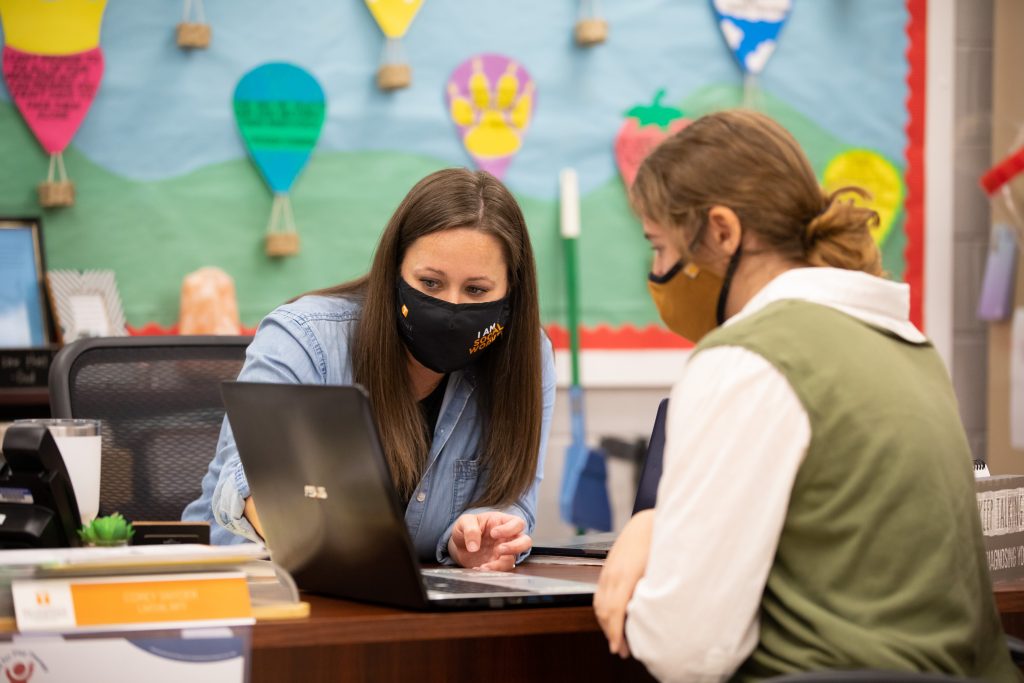School social workers are trained mental health professionals with a BSSW or MSSW degree in social work. They are vital links between home, school, and community. School social workers provide direct and indirect services to students, families, and school personnel to promote and support students’ academic and social successes.
School social workers are usually employed by the school district or an agency contracted through the school district to provide services.
School social workers have a wide range of job functions. Their title is typically “school social worker.” Qualifications for this position are often decided by the school district or employing agency. Requirements range from a bachelor’s degree to a clinical license from the state in which they practice.
Learn more about getting your School Social Work License Here.
Possible job functions within a school setting:
- Conduct bio-psychosocial assessments and social histories.
- Assess students for substance use, support systems, physical and emotional functioning, barriers to academic performance, peer issues, suicidal/homicidal ideation, and similar issues.
- Develop and implement treatment plans and discharge plans that support student self-determination.
- Provide direct and indirect services to special needs students.
- Consult with teachers and administrators.
- Provide direct therapeutic services, such as individual, family, or group therapy, regarding specific issues.
- Provide crisis management services, including safety assessments.
- Advocate for student services and students’ best interests.
- Conduct home visits.
- Identify and resolve ethical issues.
- Manage and supervise staff.
- Implement school-based prevention programs.
- Contribute to a multidisciplinary team.
- Perform community collaboration & outreach.
- Develop programs and policy.
- Perform public relations duties.
- Conduct school improvement planning
- Mobilize school and community resources to enable children to learn as effectively as possible.
- Conduct staff development for educators.
- Consult with teachers and administrators.
- Provide training and workshops to teachers, school staff, and parents.
- Provide case management services, including, but not limited to, referrals to community resources and collaboration with other professionals.

Benefits and Challenges of Working as a School Social Worker
School social workers play a vital role in addressing the various needs of students in an educational setting. Through the roles social workers assume, they have the opportunity to collaborate in the improvement of the lives of those they serve.
Their roles vary from student to student, providing a variety of experiences on a daily basis. However, like many social workers, the caseloads of school social workers are often high. School social workers can be assigned to more than one school, requiring time to travel between locations. Often the school social worker works in isolation and may not have access to consistent supervision. There also may be limited resources to support service delivery, such as a lack of confidential and private space, supplies, and training.
The majority of school social workers hold a MSSW degree in social work, which is the prescribed entry level in most states. Some states, including Tennessee, do allow entry level at the BSSW level.
School social work is currently an expanding profession in many states. Funding for school social work positions can be tied to federal dollars and federal mandates. Any changes at the federal level could affect school social work positions. Changes in state funding could also affect school social work positions.
The Midwestern US is currently the strongest area for school social work, but many other states across the country have strong programs. Within states, the level of services provided from school to school varies. A few states make very limited use of school social workers.
Salary ranges from $25,000 to $90,000, depending on educational level and years of experience. Many school social workers work the traditional school year. Others work additional weeks, months, or throughout the year. Many are paid according to the teachers’ salary schedule. Tenure is offered to many school social workers.
The regulation of school social work is a state educational issue. Certification requirements are developed by each state and vary accordingly. The School Social Work Association of America (SSWAA) maintains a directory of state information.
Many states have reciprocal agreements regarding the transfer of certification from one state to another. Specific information can be obtained from each state educational agency. SSWAA can furnish the address for each state educational agency.

Interested in our School Social Work Licensure Program?
Sources:
Social Workers in Schools: Occupational Profile (2010). NASW Center for Workforce Studies and Social Work Practice. Washington, DC: NASW.
School social work: A life-changing career. Published by the School Social Work Association of America
The SSWAA is the only national organization dedicated exclusively to school social work. SSWAA serves as the clearinghouse for school social work information and resources and offers a national conference each spring. SSWAA publishes a monthly newsletter and a weekly electronic newsletter filled with information and resources for the practitioner, educator, and student. Membership is available directly from SSWAA and available at a discount from many state school social work associations. Special rates are offered to students and retired school social workers.
